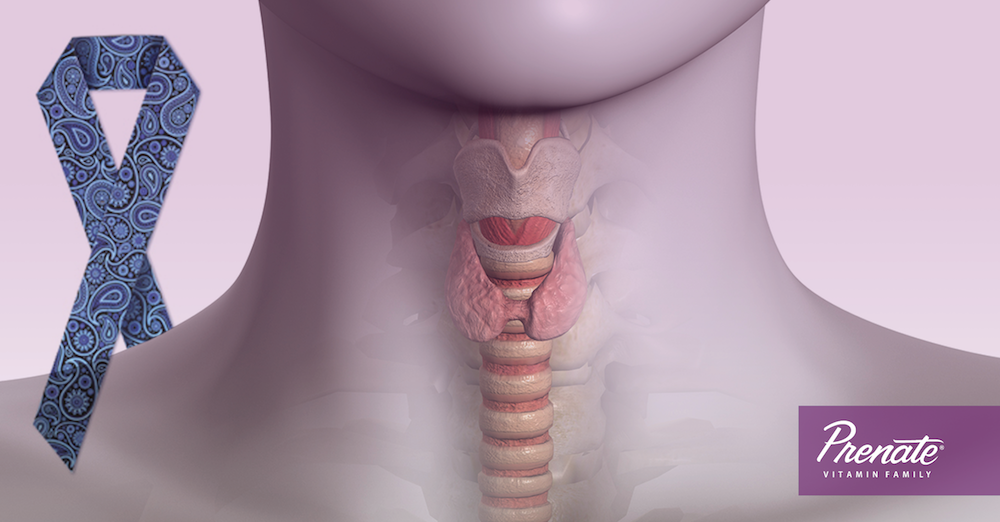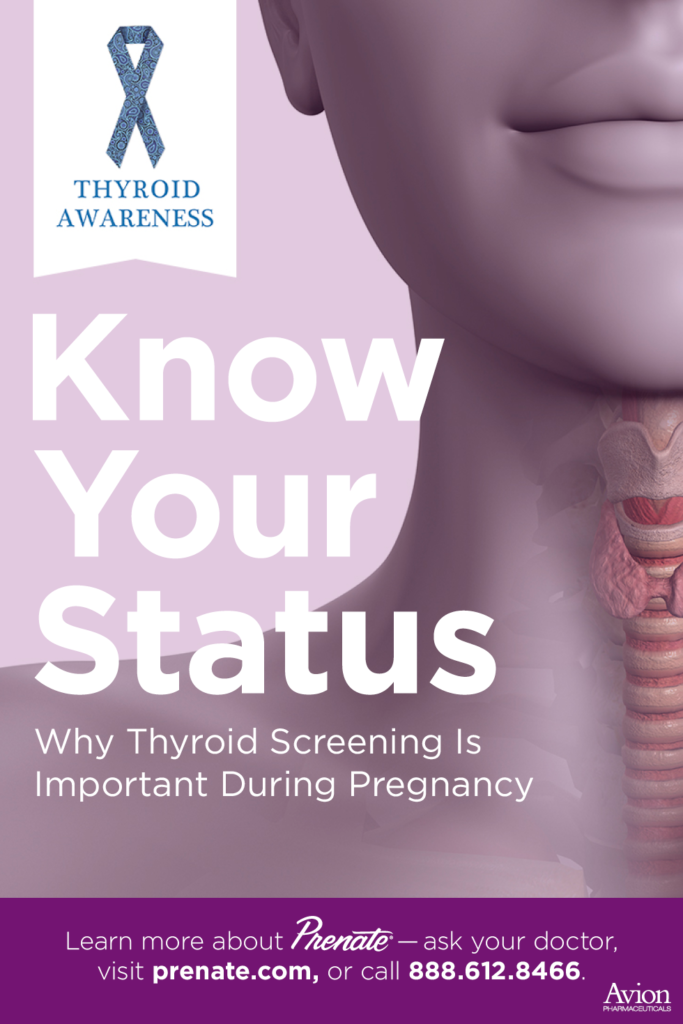Assessing Your Thyroid Function During Pregnancy
January 5, 2018
January is National Thyroid Awareness month, and many women do not realize that pregnancy has a profound impact on the thyroid gland. If you are pregnant or thinking of becoming pregnant, it is important to understand the function of the thyroid, thyroid-related conditions and nutrition that supports a healthy thyroid. Similarly, all pregnant women should be verbally screened at their initial prenatal visit for any history of thyroid dysfunction.
Understanding the Thyroid Gland During Pregnancy
The thyroid gland is a butterfly-shaped gland that is about two inches long and located in the front of the throat. It uses the iodine in the foods we eat to make two primary hormones: triiodothyronine (T3) and thyroxine (T4). These hormones regulate the body’s metabolic rate, heart and digestive functions, muscle control, brain development and bone maintenance.
During a normal pregnancy, the presence of hCG and an increase in estrogen can cause fluctuations of some thyroid hormones during the first trimester.1 Similarly, the thyroid may increase in size by 10 to 15 percent.1
During the first trimester, a developing baby is dependent on the mother for production of thyroid hormones.1 In the second trimester of its mother’s pregnancy, the baby’s thyroid begins to produce thyroid hormones on its own.1 However, the baby is still dependent on the iodine from foods that mom consumes, as it’s essential to proper thyroid function.
Prenatal Vitamins That Support Thyroid Function
Our bodies do not make iodine naturally. Because normal thyroid function is dependent on iodine, it is important that our diets or supplements include this critical micronutrient. The U.S. Food and Drug Administration recommends that pregnant or lactating women consume 1 mg of iodine every day. Similarly, the American Thyroid Association recommends that women begin thyroid supplementation at least three months prior to pregnancy.2
In recognizing the importance of iodine in prenatal vitamins, the Prenate® Vitamin Family includes this mineral in a number of our vitamins, such as:
Thyroid Screening During Pregnancy
In addition to discussing prenatal nutrition with your health care provider, it’s recommended that every pregnant woman have a verbal screening at her initial prenatal visit for any history of thyroid disfunction.2 If any of the following risk factors are present, additional screening or blood tests may be necessary to evaluate thyroid hormone levels and function.
These risk factors include:
- A history of hypothyroidism, hyperthyroidism or current symptoms or signs of thyroid dysfunction2
- Known thyroid antibody positivity or presence of a goiter2
- History of head or neck radiation or prior thyroid surgery2
- Being 30 years old or older2
- Type 1 diabetes or other autoimmune disorders2
- History of pregnancy loss, preterm delivery or infertility2
- Multiple prior pregnancies2
- Family history of autoimmune thyroid disease or thyroid dysfunction2
- Morbid obesity2
- Use of amiodarone or lithium, or recent administration of iodinated radiologic contrast2
- Residing in an area of known moderate to severe iodine insufficiency2
Hormone therapy may be recommended for women who discover their thyroid levels are elevated or low. Pregnancy is possible for women with thyroid imbalances. If you are recently pregnant or think you may be at risk for thyroid dysfunction, talk to your doctor about the best course of action for your body and situation.
You Are About To Leave This Website
By clicking continue, this link will take you to a website to which Alora Pharmaceuticals Policies & Terms of Use do not apply. Alora and its subsidiaries do not control the content or accuracy of third-party websites and assume no responsibility for their use.











